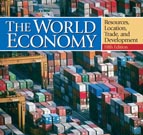Irish revisit bad old days of job losses, debt and poverty
 Dublin - The choked voices on the airwaves telling tales of job losses, repossessions, debt and downright misery signal the seismic shift in Ireland's economy that has caught thousands unaware.
Dublin - The choked voices on the airwaves telling tales of job losses, repossessions, debt and downright misery signal the seismic shift in Ireland's economy that has caught thousands unaware.
One such voice is that of Kathleen, a mother of four, who sobs as she describes how she was given a sub-prime mortgage to redecorate the family home she inherited.
With arrears of 7,000 euros (9413.6 dollars), she is now in danger of losing that home as interest rate increases meant that her repayments jumped from 1,600 to 2,300 euros a month.
"I just couldn't afford it any more," she said.
With her husband's income dwindling as he was dependent on the ailing construction sector and the mortgage company threatening "to go legal" she could see no way out and was feeling suicidal.
The couple's combined earnings of 3,000 euros a month meant that she should only have been allowed about 90,000 euros in a mortgage instead of the 260,000 which a sub-prime lender, owned by failed US investment bank, Lehman, loaned the family.
"I can see no way out. I just want to get back to the way I was. I just want to be happy for my children," said the woman, who would only use her first name when she spoke to Irish national broadcaster RTE last week.
Such stories are a far cry from the heady swagger of the days of the Celtic Tiger boom, and Ireland is shocked at the speed of the crash.
"People are dropping like flies from the construction and engineering sector," says Fergus Mc Gabhann, an engineer in his 40s who has just received notice that he is losing his job in one month's time.
"It's all changed," says Mc Gabhann, who has also lost money in a government-promoted savings scheme, the value of which has plummeted.
"This means that the reserves I had are depleted and I don't have time to sit and wait it out. I can't really afford to stay here now," he told Deutsche Presse-Agentur dpa.
His daily commute to Ringaskiddy, which is home to the pharmaceutical industry near Cork in south-west Ireland, has changed beyond recognition.
"The traffic jams are all gone," he says. "The car parks are empty. We have had troughs before, but you would find small jobs to keep you going. This time all the big projects have been cancelled and small jobs have all dried up too."
He feels as if he is left with no choice but to leave.
"I have done it before, but this is the first time I have to do it with small children and I am not looking forward to it."
The combined effects of the global credit crisis and the construction slump have meant that unemployment in Ireland has increased by 49 per cent in the last year and is expected to hit 7.3 per cent next year.
According to the September figures from the Central Statistics Office, the numbers receiving unemployment benefit have risen to 244,500, a massive 48-per-cent rise on September 2007 and the highest in 11 years.
Those who are in employment feel they can do little to secure themselves against what may be worse times to come.
Jackie Gowran, who is self-employed, had hoped to downsize from a four-bedroomed house to a three-bedroomed one, but the housing market downturn has meant that her house has remained unsold after a year.
"The credit crunch does restrict your options. It wasn't crucial for me to sell, but the reality is I wanted to downsize and I haven't been able to. In terms of being self-employed, it would make you sit up and take notice. I have enough work lined up for the next six months, but after that it might be different." (dpa)